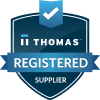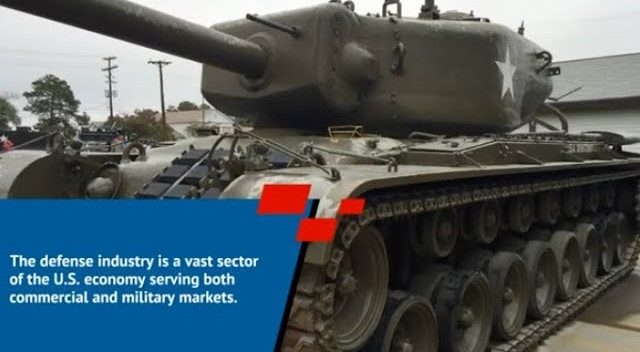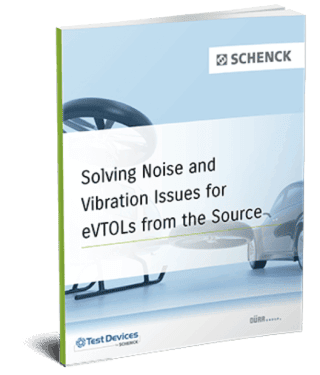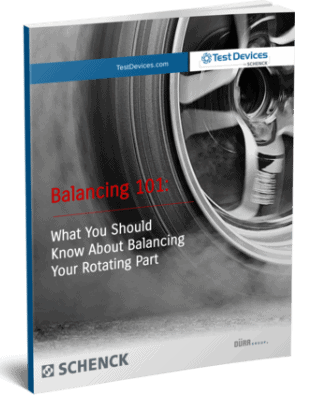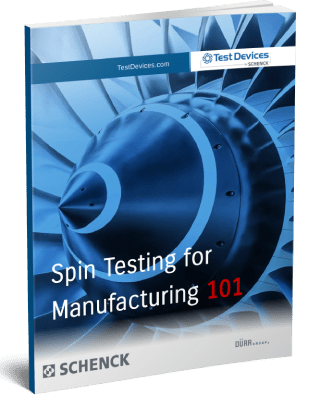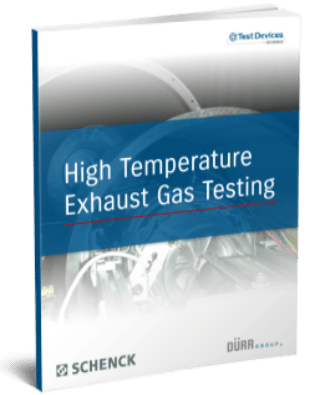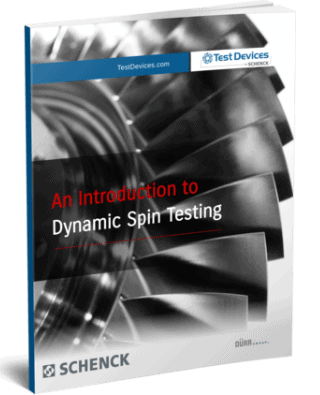Defense
The defense industry is a vast sector of the U.S. economy serving both commercial and military markets. It encompasses the production of different type of air, sea, land and space vehicles, software and cyber equipment, weapons and many other arrays of defense related items. In fact, the Defense Industrial Base Sector is a global network of private and public companies that help the United States meet military requirements for weapons systems, components, and research and development.
Anything used in defense applications must be reliable and robust, and to meet these requirements it often involves various types of rigorous engineering and scientific testing, including spin testing a process that validates the structural integrity, design, durability, and balance of safety and operation critical rotor for defense and aerospace propulsion systems. Experts from Test Devices provide test engineering and spin testing services to optimize the design, engine certification, and manufacturing process of aerospace machinery.
What We Do
Test Devices by SCHENCK is the leader in the spin testing, specializing in manufacturing and testing of rotating components that go into turbomachinery, energy systems, jet engines, rocket motors and electric motors (for EVs an eVTOLs).
For the defense customers, these critical tests must be performed by an organization with ITAR (International Traffic in Arms Regulations) certification. ITAR is the U.S. Department of State regulation that controls the manufacture, sale, and distribution of defense and aerospace-related solutions. Test Devices meets ITAR standards and uses cutting-edge technology to cover all spin testing needs. We are dedicated to developing the most innovative ways to test engine parts for defense industry use.
Spin testing helps validate the structural integrity of high-speed rotating parts (overspeed and burst tests) as well as their fatigue durability under its cyclic operation loads (Low Cycle Fatigue). These testing procedures also drive advancement in the field, refining turbine and compressor system designs.
- Overspeed testing runs the test rotor to a speed far greater than that which the component will actually experience in operation to ensure there is no failure or unexpected deformation in the rotor that could compromise the machine operation. Test Devices offers spin testing services ranging from a “simple” proof test to advanced spin tests with various test environment (for example, high temperature or cryogenic) with arrays of instrumentations to measure some pertinent data.
- Test Devices’ offer convenient and cutting-edge capability when it comes to fatigue testing. We offer end-to-end service from conception, design, and execution of the tests. Our test facility is capable of expeditious test cycle time by using the array of powerful drive systems and the Real-Time Crack Detection System (RT-CDS). RT-CDS has proven its ability to detect and stop LCF test at an onset of crack initiation, saving the time and effort to evaluate the result of LCF test for the customers.
The data measured and the insights gained from these tests ensure top-tier performance, energy efficiency, and mission profiles for military defense products.
Why Are Our Services Important?
High-speed rotating parts constitute essential and critical components for a wide range of high performance machines. Due to the level of rotational kinetic energy stored in the rotors in their operation, the failure of these parts is often catastrophic. Spin testing serves as an important step to assess and validate the structural integrity and the calculated fatigue life of the rotors.
It is easy to imagine the damage that could be inflicted by a bursting rotor, such as a turbine disk in a jet engine. When burst, it releases the fragments with an energy level comparable to an explosive. The structural integrity of these parts must be rigorously assessed and confirmed well before the rotor is installed in the machine and being fielded.
An equally devastating form of damage is structural fatigue, gradual structural damage—evidenced by cracks in material—common in cyclically loaded parts. Fatigue often occurs in stress concentration features of the structure that is subjected to cyclical load. The rate of damage accumulation from the fatigue is often driven by a complex interaction of the mechanical load, the operating environment of the parts, and its material properties. The fatigue data drives the safe operating life and necessary maintenance intervals of the machines.
Low Cycle Fatigue (LCF) test is a form of spin testing technique to assess the initiation and propagation of fatigue damages in rotors under a cyclic centrifugal load (CF). A body load, such as CF, is not easy to replicate in static or quasi-static settings – the interaction of the shape, mass, and acceleration from the CF in the rotors results in complex stress fields in the structure – Spin testing offers a pragmatic solution.
The data from the test help engineers and designers to evaluate the safe operational boundary and necessary maintenance requirements for high-speed spinning parts. Data also provide engineers the insight to understand the rotor failure behavior and ways to improve the design.
Applications of spin testing include:
- Aerospace jet engine disks, blades and auxiliary rotating parts
- Turbo-pump wheel for rocket motors
- Electric cars and eVTOL electric motor rotors
- Automotive turbocharges
- Medical and industrial centrifuge rotors
- Industrial compressors
Why Choose Test Devices for Your Spin Testing Needs?
Spin tests need to be performed accurately, informed by the proper expertise and knowledge. The consequences of not doing so could result in machine failure and loss of life.
Test Devices brings five decades of expertise to our spin testing. We offer full engineering test service to our customers and strive to meet the ever-growing demand for reliable and efficient rotating parts. We test energy storage flywheels, turbomachinery, jet engine components, rocket engine wheels, electric vehicle and eVTOL motors, and more. We are compliant with ITAR, AS9100, and ISO 9001 standards, all of which demonstrate our commitment to premier quality and customer satisfaction.
Our 55,000-square-foot facility gives us the space and technology necessary to handle the most complex demands. Our expert team works closely with customers to understand their needs and craft solutions that match their expectations. Contact us today to learn more.


